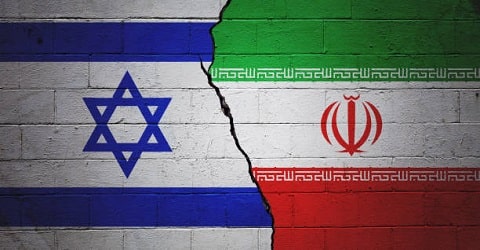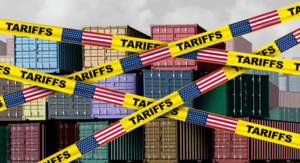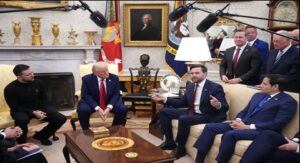
Iran-Israel Conflict: A Major Threat to Middle East Economic Corridor Initiatives
The Iran-Israel conflict stands as a central obstacle to the realization of economic corridor projects in the tumultuous Middle East. With Israel’s periodic strikes on Iran-affiliated groups and Tehran’s indirect retaliation through militias across the region, tensions escalate, threatening stability.
The shadow war intensifies with missile attacks on Israel and strikes on U.S. bases, amplifying uncertainties in trade routes. Moreover, the risk of escalation between Iran and Saudi Arabia looms large, jeopardizing vital transportation channels.
These geopolitical complexities underscore the imperative for diplomatic engagement to navigate the intricate web of regional rivalries and ensure the viability of economic corridors.
Iran-Israel Conflict
In the ever-evolving landscape of geopolitical dynamics in the Middle East, the pursuit of economic corridor initiatives faces significant challenges. Among these obstacles, the ongoing conflict between Iran and Israel emerges as a formidable threat, casting a shadow of uncertainty over regional stability and the viability of ambitious infrastructure projects.
In this article, we delve into the complexities surrounding this conflict and its implications for initiatives like the Middle East Economic Corridor (IMEC) and the Belt and Road Initiative (BRI) in five key points.
Table of Contents
1. The Unyielding Iran-Israel Conflict
At the heart of the Middle East’s geopolitical turbulence lies the enduring enmity between Iran and Israel. Characterized by sporadic military confrontations and proxy warfare, including the Iran-Israel conflict, this dynamic presents a constant source of instability in the region.
Israel’s targeted strikes against Iran-affiliated militant groups across various territories, coupled with Tehran’s support for militias targeting Israel and U.S. interests, exemplify the entrenched hostility. The recent escalation, marked by Iran-aligned militias launching attacks on commercial shipping and threats to close off vital trade routes, underscores the far-reaching ramifications of this conflict.
Read More: Global Political Turmoil & Economic Uncertainty: 2024
2. Impact on Trade Routes and Economic Partnerships
The escalating tensions between Iran and Israel, compounded by broader geopolitical rivalries, pose significant challenges to established trade routes and economic partnerships. The Iran-Israel conflict, in particular, adds a layer of complexity to an already volatile situation. Particularly concerning is the potential disruption to shipping and transportation networks vital for the success of initiatives like the BRI.
Despite efforts at mediation, the risk of a regional crisis triggered by Iran’s nuclear ambitions or proxy conflicts remains palpable, casting doubts on the sustainability of planned infrastructure projects and discouraging potential investors.
3. Implications for the Middle East Economic Corridor (IMEC)
The IMEC, envisioned as a transformative initiative to connect diverse regions and foster economic integration, is not immune to the ramifications of the Iran-Israel conflict. The strategic centrality of peace between Israel and its Arab neighbors in the IMEC’s agenda underscores the critical role of regional stability. However, the outbreak of conflicts like the Hamas-Israel war disrupts the momentum towards normalization agreements, undermining the IMEC’s prospects.
The Iran-Israel conflict further exacerbates tensions and complicates efforts to establish diplomatic and economic ties, jeopardizing the corridor’s realization. The lack of consensus on key issues such as Palestinian statehood further complicates efforts to establish diplomatic and economic ties, jeopardizing the corridor’s realization.
Read More: Geopolitics of Economic Development in the Middle East
4. Exclusion and Alternative Corridor Projects
The exclusion of key regional players such as Egypt, Iraq, Oman, and Turkey from the IMEC raises questions about the initiative’s inclusivity and feasibility. Turkey’s vocal objections to its exclusion have prompted discussions about alternative corridor projects, such as the Development Road Project (DRP), aimed at circumventing the IMEC’s limitations.
The pursuit of alternative routes underscores the region’s complex geopolitical landscape and the competing interests at play, highlighting the challenges of forging consensus and cooperation among diverse stakeholders.
Read More: Impact of the Russia Ukraine War: A Global Economic Catastrophe
5. Border Disputes and Regional Antagonisms
The persistence of border disputes and territorial disagreements among Middle Eastern countries adds another layer of complexity to the economic corridor initiatives.
Contested sovereignty over strategic resources and maritime boundaries fuel regional antagonisms, exacerbating tensions and impeding cooperation. Border disagreements may escalate into larger disputes, as seen in the Gulf diplomatic rift of 2017-2021.
From disputes over gas fields between Iran, Kuwait, and Saudi Arabia to longstanding disagreements over islands and oil fields, unresolved territorial issues undermine the prospects of regional integration and economic development.
Bottom Line
In conclusion, the Iran-Israel conflict looms large as a major impediment to the advancement of economic corridor initiatives in the Middle East. Its far-reaching consequences, from disrupting trade routes to fueling border disputes, underscore the imperative for diplomatic engagement and conflict resolution.
Mitigating geopolitical strains requires a concerted effort to address underlying grievances, promote inclusivity, and foster cooperation among regional actors. Only through sustained dialogue and collaboration can the vision of interconnected economic corridors become a reality, ushering in an era of prosperity and stability in the Middle East.





